Exploring the Woods in the City
Exploring the Woods in the City
By: Kathleen Forste (Instagram: @k_4ste)
As a paleoethnobotanist I study the relationship between plants and humans in the past by analyzing archaeologically preserved plant remains -- essentially carbonized seeds and plant bits. These remains are a far cry from their vegetative forebearers, and I joke that I can’t identify a plant by its flower or foliage but burn some of its seeds and the likelihood of me being able to identify it increases.
This gap in my knowledge has made me think about my own relationship with plants, and how that relationship is shaped by living in one of the densest urban localities in the Eastern US- Boston, Massachusetts. Like any urbanite graduate student, I try to seek refuge from city schedules and research demands in nature, along the lines of forest bathing, which came to my attention in the fall of 2017 in an NPR story (1).
Forest bathing is a practice where you immerse yourself in the natural environment, turning your attention to the sights, sounds, scents, and sensations of the plants and animals around you as you leisurely stroll through the woods. It is meant to be a restorative practice that promotes wellness in which you connect to nature at your own pace. It began in the 1990s in Japan, where the practice is called “shinrin-yoku” which roughly translates to forest bathing. Since then, cities around the world have organized and promoted these practices, training guides who lead people on these sorts of meditative walks through natural settings, like at the Arnold Arboretum just south of Boston (2). Studies have traced the benefits of forest bathing, and have found that it can decrease blood pressure and stress hormones, improves mood, and is just generally good for you to walk and get some fresh air.
The place that I have found for my self-guided forest bathing is north of Boston, at the Middlesex Fells Reservation. “The Fells” is 2,575 acres of forested park with large ponds that boast a number of recreational activities and miles of hiking trails. These trails meander along main roads, up pine needle-padded hills, and atop ancient granite outcrops which offer stunning views of the Atlantic Ocean and downtown Boston just 10 miles away.
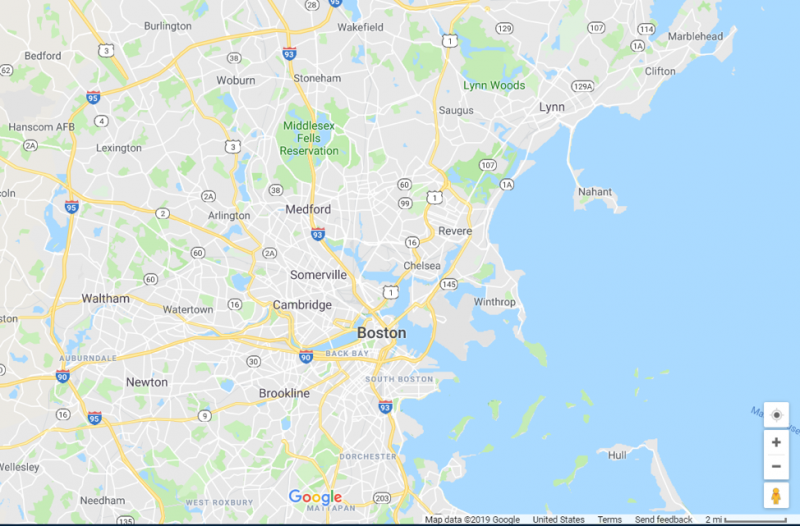
GoogleMaps image of the Boston area. Note the Middlesex Fells Reservation bi-sected by I-93.
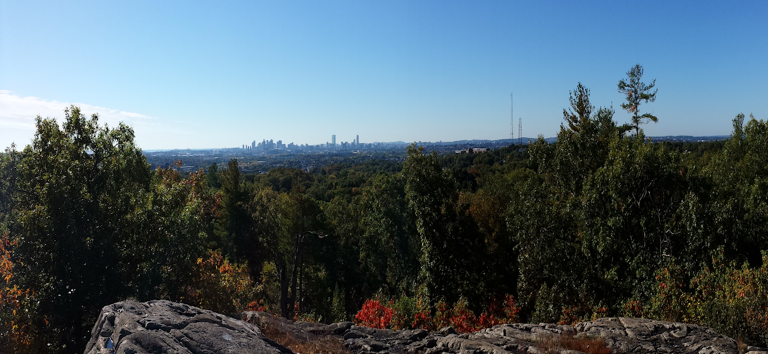
Looking over the granite outcrops and autumn foliage SE towards the Boston skyline. October 2014.
It is along one of these hiking trails that I found myself drawn to restive observation and peaceful solitude. I took advantage of a long-awaited warm and sunny day this May, the sunlight dappling the leaf-littered ground through the acid green of new leaves rustling in the breeze. I found a large white pine tree that established domain atop a granite outcrop, and ensconced myself in the bed of needles at the base of its trunk, the scent of sun-warmed pine wrapping me up like a blanket. Beneath the boughs of this tree is privacy and solitude and peace. My soundscape was the soft trill of songbirds overhead and the shuffling and skittering of critters in the leaf litter. Though immersed in my natural surroundings, I didn’t quite escape the hum and thrum of the traffic on the major roads below, which was in turn periodically punctuated by rumbling jet engines overhead. The pulse of “The Hub” radiated into the woodlands, but it became white noise from a distant soundscape as my attention focused on my more immediate surroundings.

Whitepine needle nest
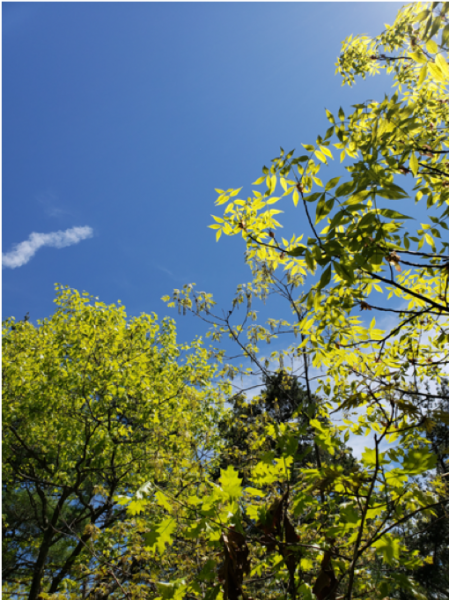
The acid-green of new leaves against the bright blue sky.
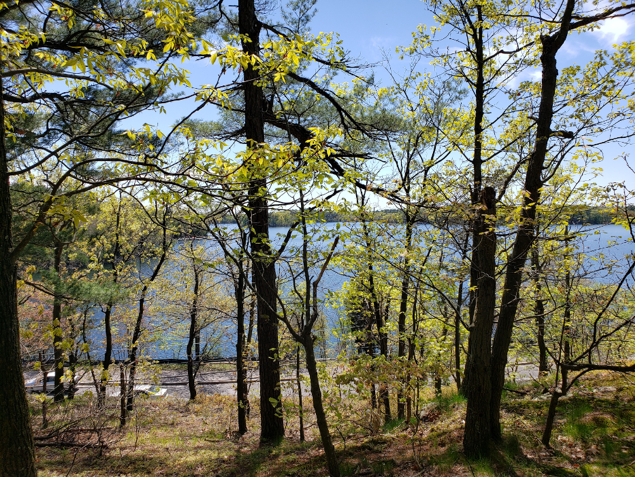
Crest of a hiking trail along Spot Pond and a major roadway.
Reveling in the warmth of the day, I leaned back with my tree identification book to learn about the trees around me. Here my I could be leisurely -- I’m away from my urban life of packed schedules and long days, straining to beat the rush to snag a parking spot or a seat on the train, working towards research and application deadlines. Here in my pine needle nest I could take the time to just be and take steps closer to the natural world, momentarily blurring the distinction between human and nature. I could take a break to reflect on completing another year of graduate school and to wake up my body, feeling my muscles pleasantly invigorated with exertion from hiking the uneven terrain, and reminding my feet what it feels like to walk on natural substrates and not pavements or flooring. As I hiked to a higher yet-still-meager elevation (the highest outcrop tops out at 57 meters above sea level), I felt my muscles work together to bring me above Boston, and to a fresh perspective .

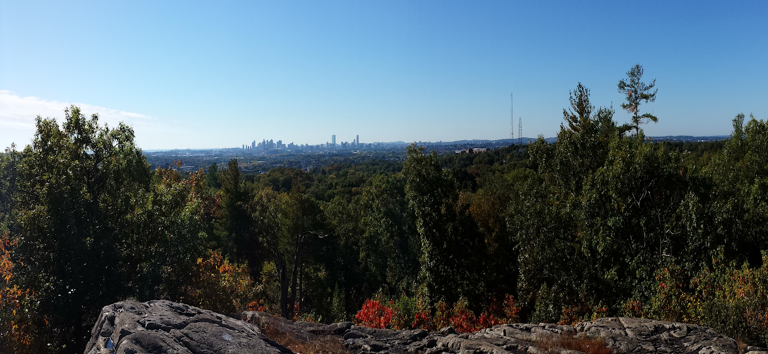
Leave a comment